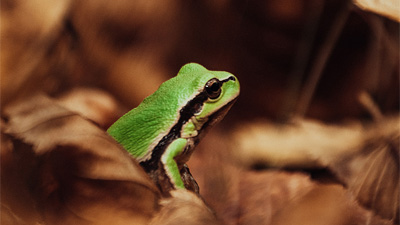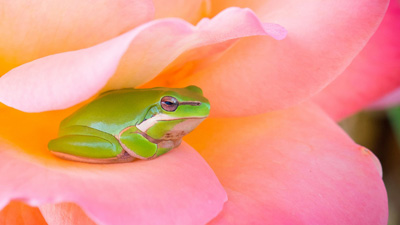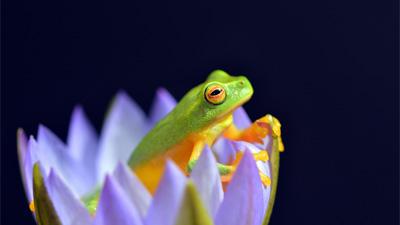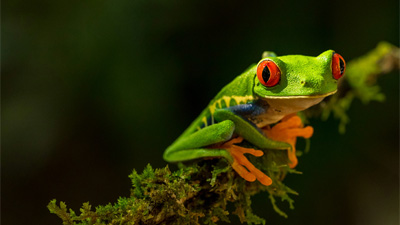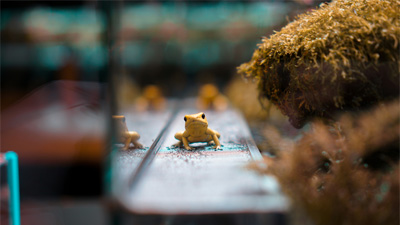How Long Does the Average Pet Frog Live? (5-15 years)
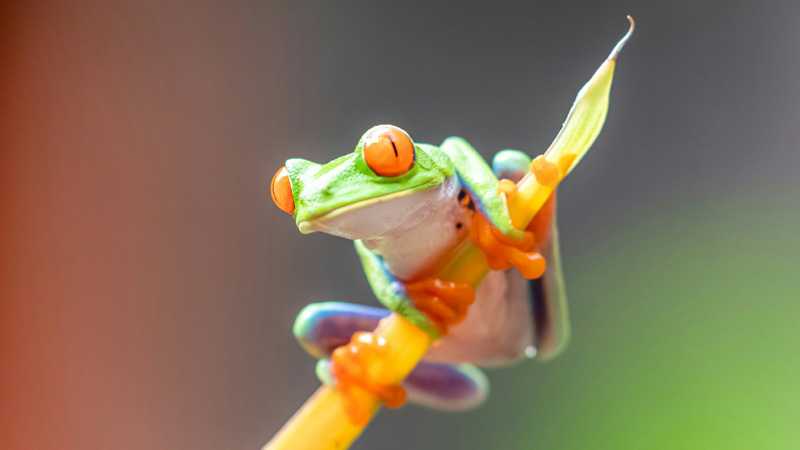
Photo by Stephanie LeBlanc on Unsplash
When it comes to choosing a pet, frogs may not be the first creature that comes to mind. However, these fascinating amphibians have gained popularity as pets due to their unique characteristics and ease of care. One of the common questions that arise when considering a pet frog is about their lifespan. How long does the average pet frog live? In this article, we will explore the lifespan of pet frogs and the factors that can influence their longevity.
The lifespan of a pet frog can vary depending on multiple factors, including species, habitat, diet, and care provided by the owner. On average, most pet frogs can live anywhere from 5 to 15 years. However, some species of frogs have been known to live much longer, while others have shorter lifespans. Let's delve into a few factors that can influence the lifespan of a pet frog.
Species
There are numerous species of frogs kept as pets, and each species has its own average lifespan. The most common pet frog species, such as the African Dwarf Frog and the White's Tree Frog, typically have a lifespan of around 5 to 8 years. Other species, like the American Bullfrog and Pacman Frog, have been known to live up to 10 to 15 years in captivity. It's important to research the specific species of frog you are interested in to better understand its potential lifespan.
Habitat and Environment
Creating a suitable habitat is essential for the health and longevity of a pet frog. Different frog species have specific habitat requirements regarding temperature, humidity, and lighting. It is crucial to replicate their natural environment as closely as possible to ensure their well-being. Proper temperature regulation and a clean, spacious enclosure are vital for their overall health and longevity. Pet frogs kept in optimal conditions tend to have longer lifespans.
Diet and Nutrition
A well-balanced diet plays a significant role in the lifespan of a pet frog. Most frogs are carnivorous and require a diet consisting mainly of live insects like crickets, mealworms, and flies. Providing a varied diet and ensuring proper portion sizes is important to meet their nutritional needs. Additionally, some frog species may require supplementation with calcium and vitamins to prevent deficiencies and promote overall health.
Stress and Handling
Frogs are sensitive creatures, and excessive stress or improper handling can have a negative impact on their health and lifespan. Handling a pet frog should be kept to a minimum and done with clean, moist hands to avoid the transfer of harmful substances or bacteria. Additionally, creating a calm and stress-free environment for your pet frog is essential. Loud noises, sudden movements, and frequent disturbances can cause stress and decrease their lifespan.
Genetic Factors
Like any living being, genetic factors also play a role in determining the lifespan of a pet frog. Some individuals may inherit certain genetic predispositions that can influence their health and longevity. It's essential to obtain your pet frog from a reputable breeder or a trusted source to minimize the risk of genetic health issues.
Regular Veterinary Care
Regular veterinary check-ups are crucial for maintaining the health and well-being of your pet frog. A veterinarian experienced in exotic animals should perform routine examinations to detect any potential health problems and provide appropriate treatment. Early detection and treatment can significantly impact the lifespan of a pet frog.
In conclusion, the average lifespan of a pet frog ranges from 5 to 15 years, with some species living even longer. Factors such as species, habitat, diet, stress levels, genetic factors, and proper veterinary care all contribute to a frog's lifespan. By providing a suitable environment, a balanced diet, and minimizing stress, you can help ensure that your pet frog lives a long and healthy life. Remember to research the specific requirements of your chosen frog species and consult with a veterinarian for expert guidance on maintaining the well-being of your pet frog.
Conclusion
When it comes to the lifespan of pet frogs, it can vary depending on various factors. On average, most pet frogs can live anywhere from 5 to 15 years. However, it's important to note that different species of frogs can have different lifespans. For example, Cane Toads have been known to live for up to 40 years in captivity. On the other hand, Gray Tree Frogs have a shorter lifespan of about 7 to 9 years.
The lifespan of a pet frog can also be influenced by factors such as habitat, diet, and the care provided by the owner. Proper habitat conditions, including temperature, humidity, and lighting, are crucial for the health and longevity of pet frogs. Providing a well-balanced diet that meets their nutritional needs is also important. Lastly, regular veterinary check-ups and appropriate care can contribute to a longer lifespan for pet frogs.
It's important for potential frog owners to do research on the specific species they are interested in. Different species have different requirements and lifespans, so it's essential to provide the necessary care and environment for the specific species of frog you choose to keep as a pet.
